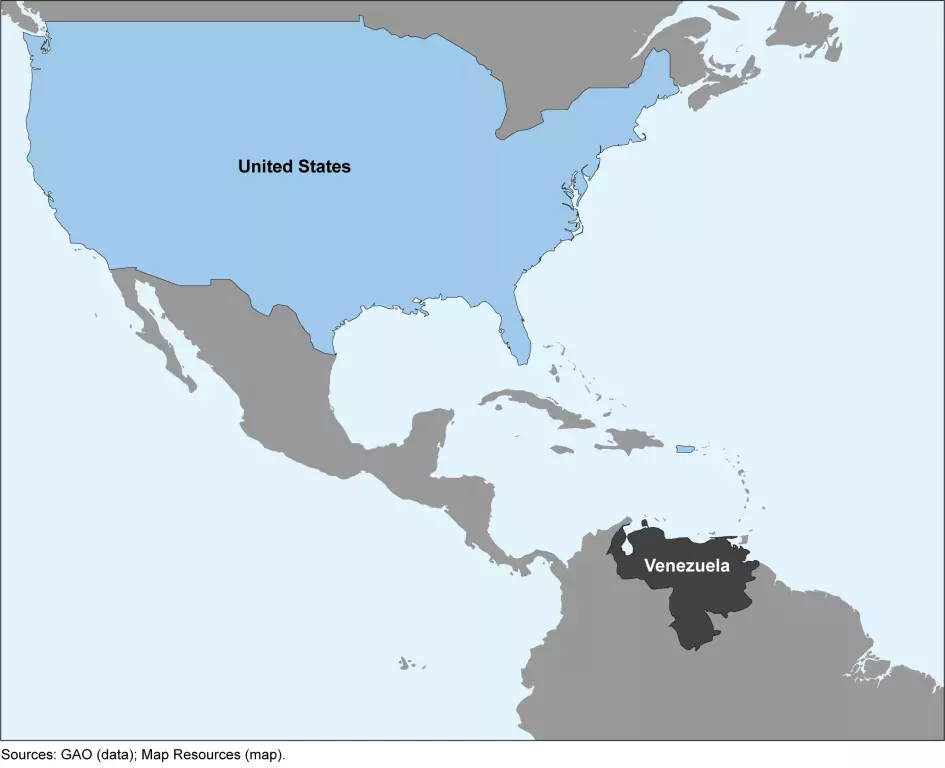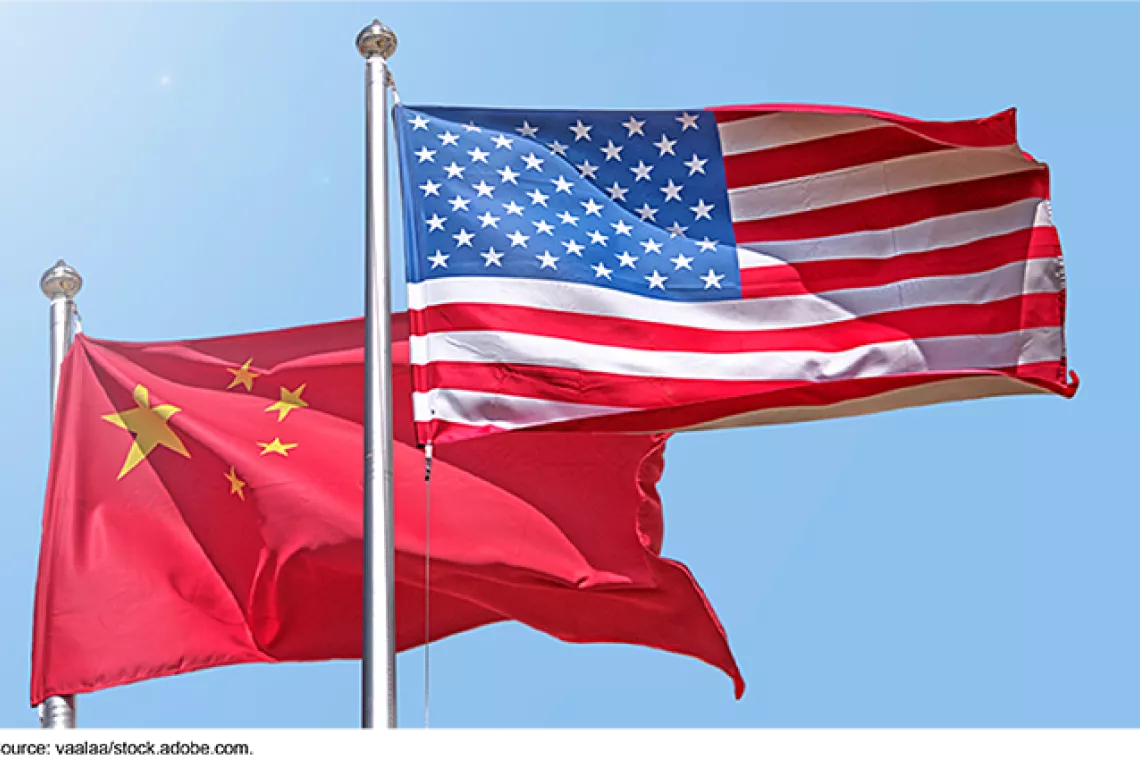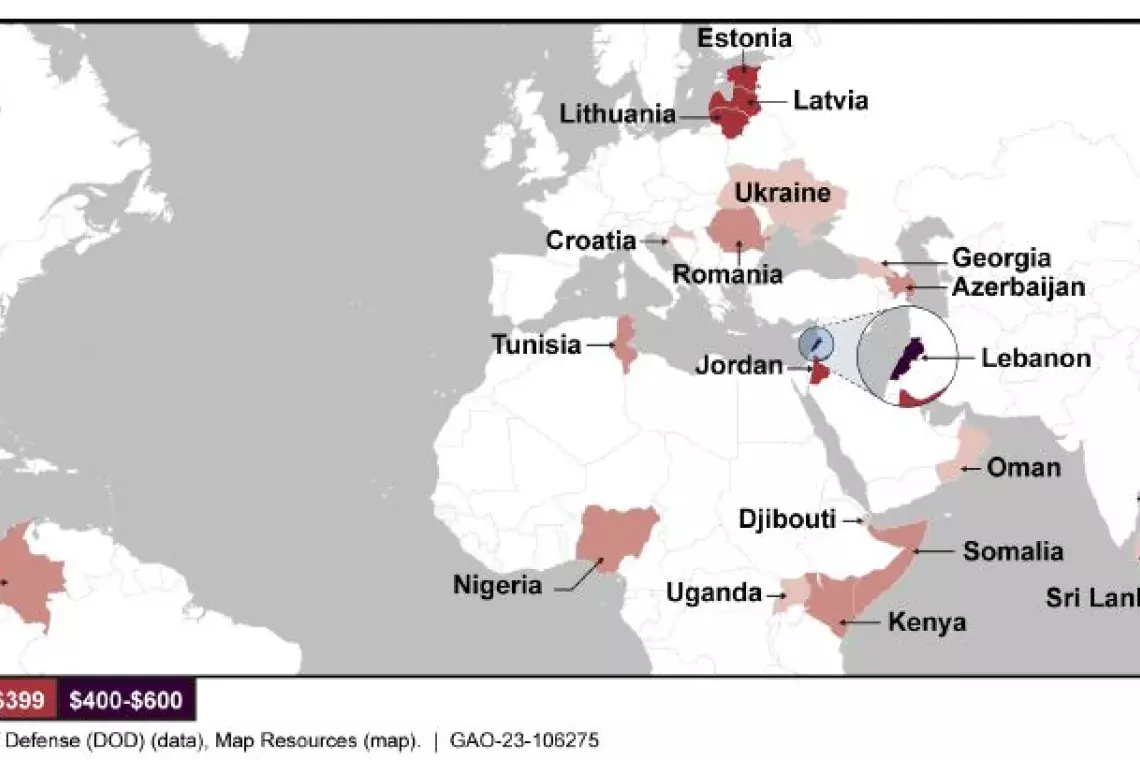Venezuela’s Political Unrest Has Made Drug Trafficking, Money Laundering, and Other Crimes Easier
Political unrest, financial collapse, and corruption in Venezuela have created an environment that allows transnational criminal organizations to operate unchecked. Their illegal activities include illicit finance (like money laundering), as well as trafficking of people, drugs, and arms.
In 2019, the U.S. ceased to recognize Nicolás Maduro as Venezuela's president and suspended embassy operations in Venezuela. Federal agencies have also taken steps to prevent illegal activities from affecting the U.S.
Today’s WatchBlog post will look at our new report on Venezuela.
Image

The Maduro regime and transnational crime organizations
U.S. agencies have indicated that the Maduro regime tolerates transnational criminal organizations’ operations within Venezuela, including some groups that the U.S. has designated as terrorist organizations. Corrupt Venezuelans have participated in and profited from these illicit activities.
Illicit finance. Both the departments of State and Treasury have reported that Venezuela is susceptible to illicit financial activities. Furthermore, between 2017 and 2022, State consistently determined that Venezuela is a major money laundering country.
Illicit financial flows related to Venezuela include proceeds from the sale of commodities, such as oil and gold, and drug trafficking.
- Oil remains a major source of income for Venezuela and has been a mechanism for fraud and corruption, according to Treasury officials. Venezuelan oil continues to be exported to other countries, such as China.
- Illicitly-mined gold from Venezuela is another source of illicit profit. Before entering international markets, its origins are disguised in the Caribbean, Latin America, the Middle East, and Africa, according to U.S.-government–funded research. Venezuelan gold is subsequently exported to countries in Europe, the Middle East, and East Asia.
- State has described Venezuela as a preferred drug trafficking route, predominately for moving cocaine to global markets. In April we reported to Congress about how Colombian cocaine is trafficked through Venezuela to the U.S., Europe, and Africa. Corrupt Venezuelans are collaborating with drug traffickers, according to the Commander of the U.S. Southern Command. These activities undermine U.S. counternarcotics goals in the region.
Following the money…U.S. efforts to disrupt the flow of illegal funds
Criminal organizations, corrupt individuals in the Maduro regime, and others have taken steps to disguise the origins of their illegal activities and commodities. For example, they use shell companies and family or business contacts acting as proxies to hide their assets. Venezuelan elites also continue to use complex transnational mechanisms to move, store, and trade their wealth abroad, according to research funded by the State Department.
U.S. agencies have taken steps to disrupt these flows. State and Treasury have provided assistance to partner countries in the region to build their capacity to disrupt criminal activity in general and, to some extent, financial crimes in particular. However, Treasury officials noted that the volume of illicit financial flows is overwhelming for many partners in the region.
Treasury’s Financial Crimes Enforcement Network has issued advisories on corruption in Venezuela. Treasury also has taken action against more than 300 individuals and entities related to Venezuela—blocking their assets and generally prohibiting U.S. businesses and financial institutions from dealing with them. The Department of Justice has charged at least 35 people with money-laundering-related crimes connected to Venezuela, securing convictions for some of them.
Learn more about our work on Venezuela by reading our new report.
- Comments on GAO’s WatchBlog? Contact blog@gao.gov.
GAO Contacts
Related Products

GAO's mission is to provide Congress with fact-based, nonpartisan information that can help improve federal government performance and ensure accountability for the benefit of the American people. GAO launched its WatchBlog in January, 2014, as part of its continuing effort to reach its audiences—Congress and the American people—where they are currently looking for information.
The blog format allows GAO to provide a little more context about its work than it can offer on its other social media platforms. Posts will tie GAO work to current events and the news; show how GAO’s work is affecting agencies or legislation; highlight reports, testimonies, and issue areas where GAO does work; and provide information about GAO itself, among other things.
Please send any feedback on GAO's WatchBlog to blog@gao.gov.




